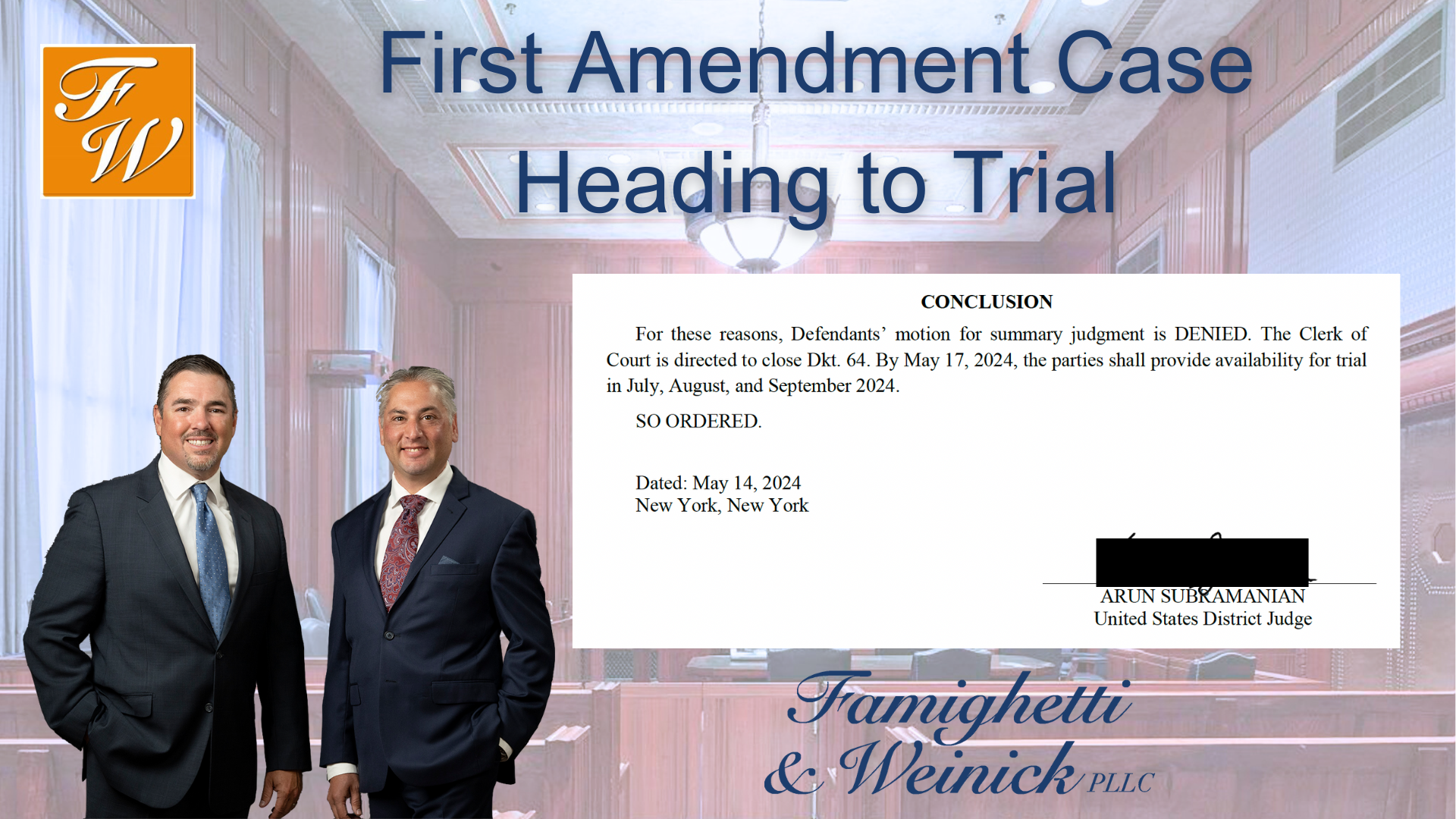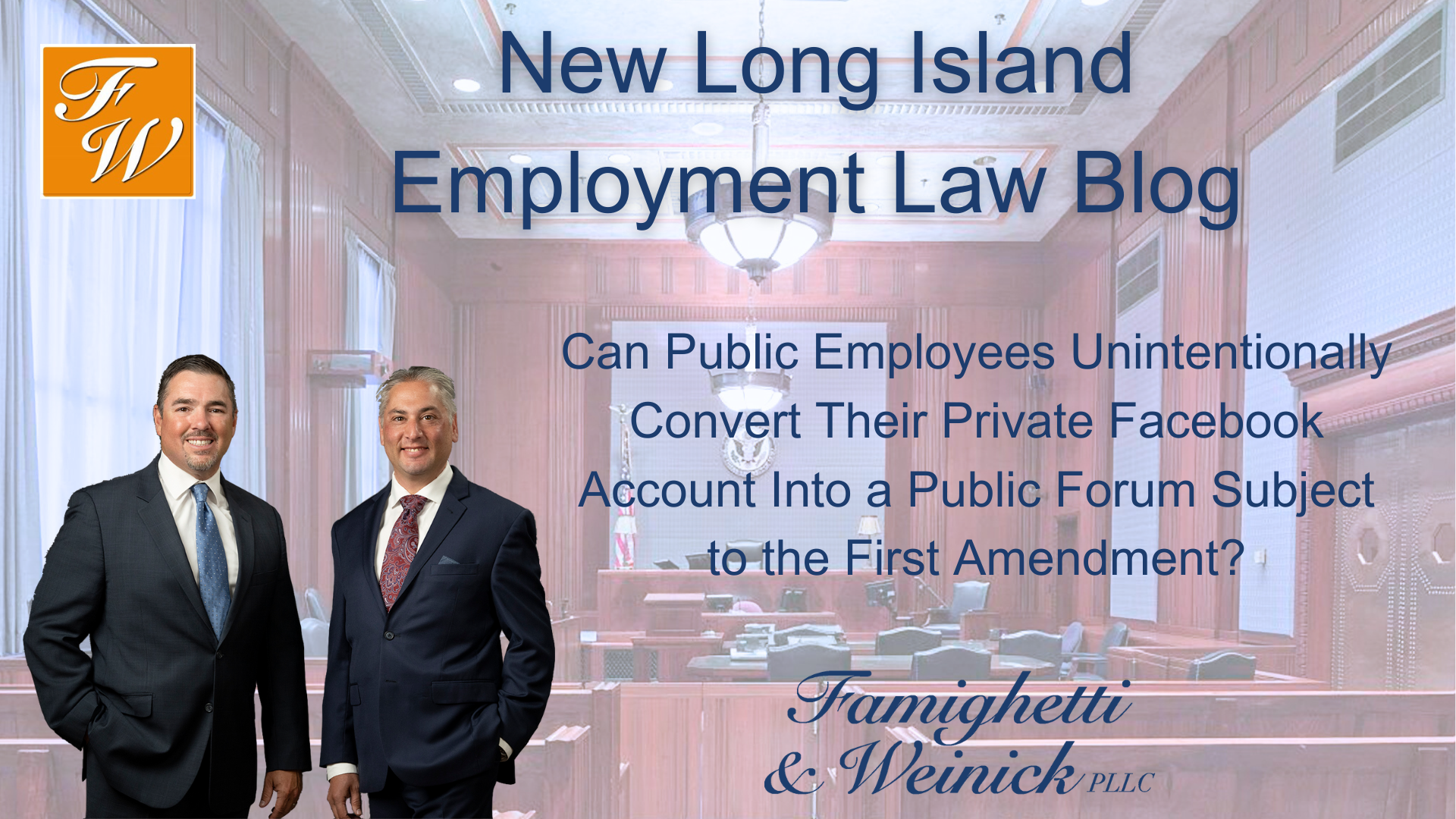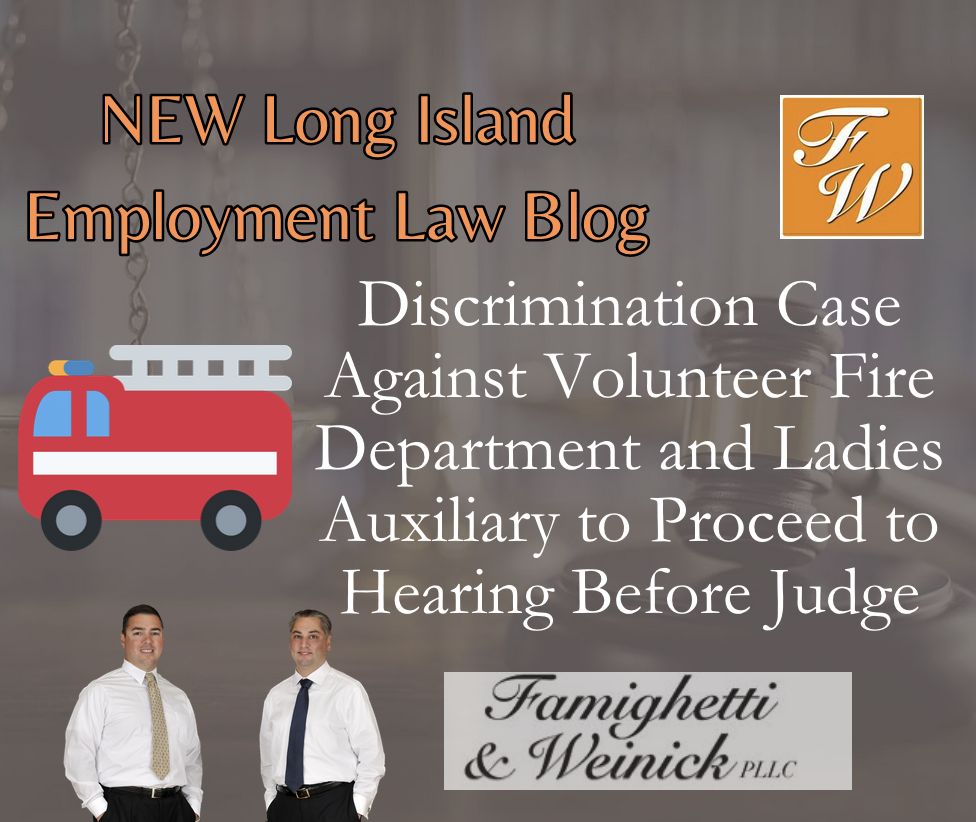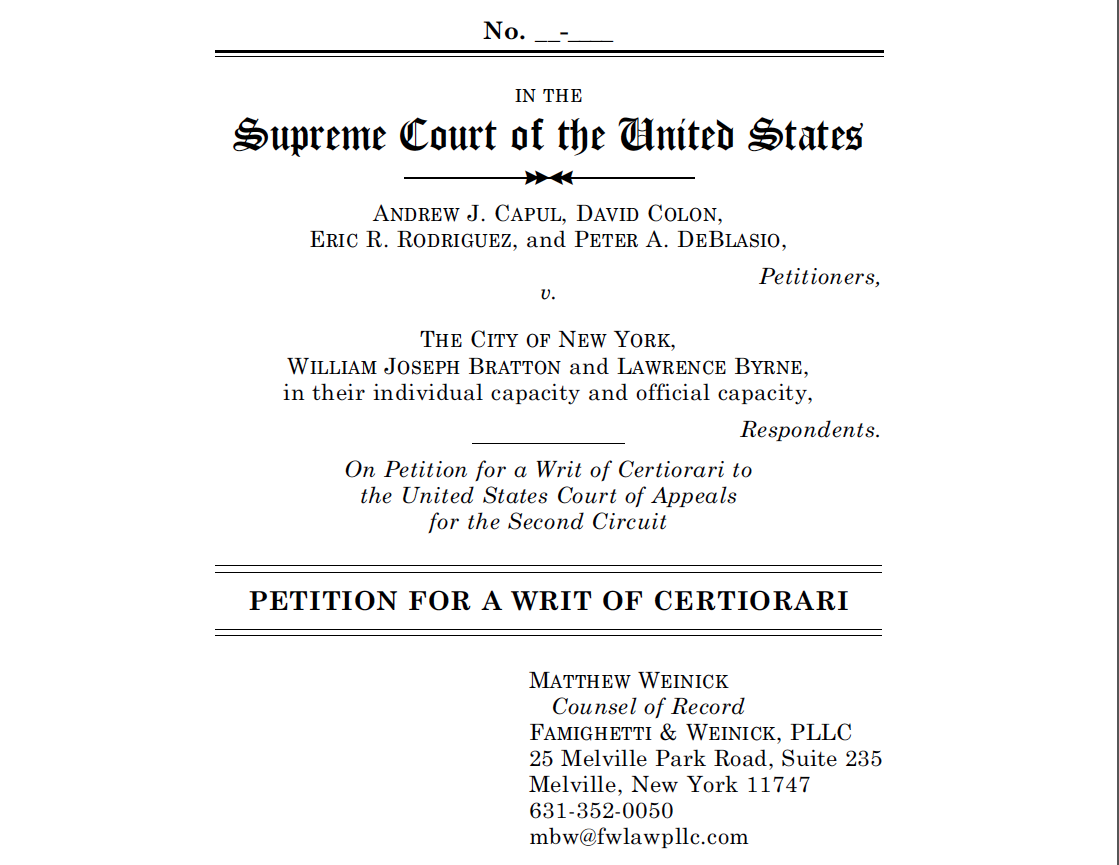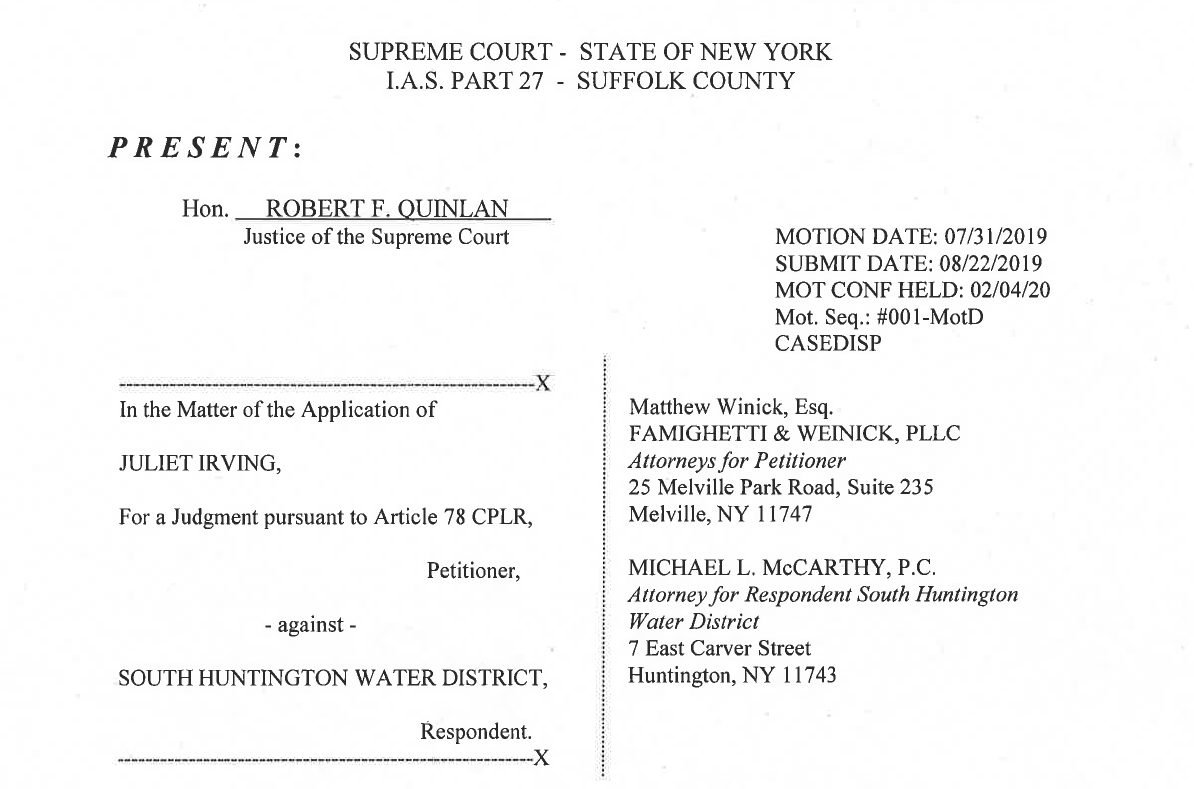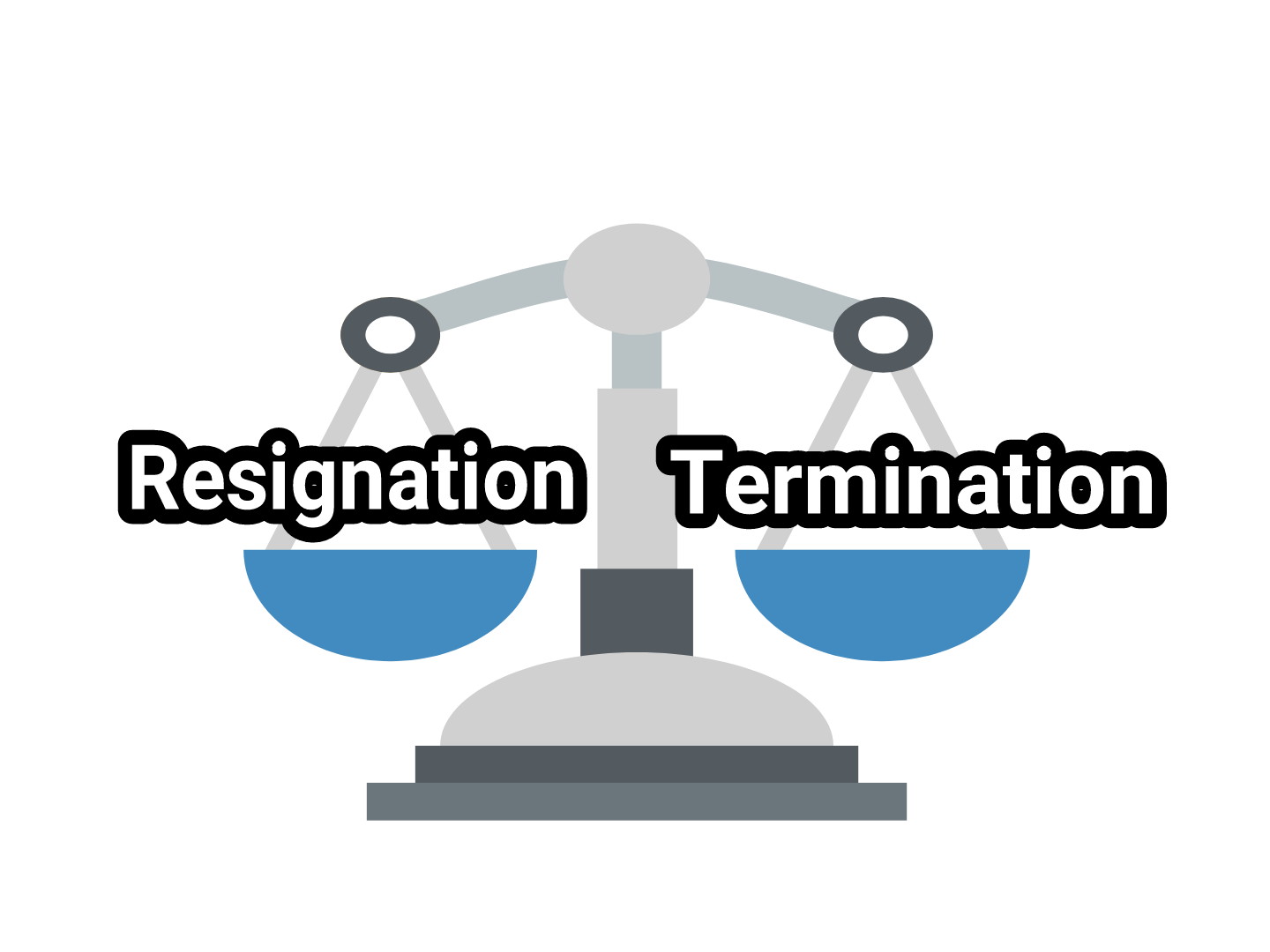Last month, employment lawyers Famighetti & Weinick PLLC shared a client review in which the client rated the firm five stars and thanked us for helping him “win” his case. We promised to blog about the client’s interesting case and today is the day. Today’s Long Island employment law blog discusses the firm’s successful appeal…
Continue reading ›Your Side










